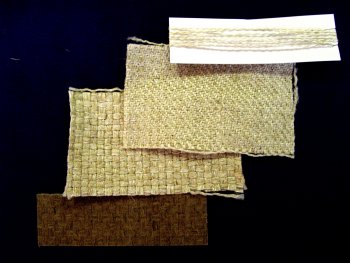After years of being on the fringes of commercially viable polymer development, biopolymers - polymers produced from living organisms - are coming into their own. They have obvious environmental advantages over oil-based polymers: they are made from plant materials that can be grown to match demand, making them sustainable and renewable.
 Biopolymer fibres available from Goodfellow.
Biopolymer fibres available from Goodfellow.
In addition, biodegradable biopolymers are close to carbon neutral, since CO2 released when they degrade can be reabsorbed by crops grown to replace them.
Historically, however, high price, inconsistent quality and often inferior performance compared to their oil-based counterparts made biopolymers a niche product with limited application. Times are changing. Propelled by the ever-increasing cost of oil as well as improvements in processing technology and product consistency, today's expanded range of biopolymers are competitively priced, commercially viable materials with overall performance that matches their oil-based equivalents.
Current applications for biopolymers include many types of packaging (food trays, thin films for wrapping, blown pellets for cushioning fragile goods in transit) as well as non-packaging items such as toothbrushes, razors, pens, cutlery and coffee cup lids. As the list of sought-after performance characteristics grows with the expanding range of biopolymers available, additional innovative applications will inevitably follow.
Goodfellow, a global supplier of polymers, metals, ceramics and other materials for science and industry, has assembled a range of biopolymers to address growing demand from product developers. Their current range focuses mainly on biodegradable polymers such as:
- Polyhydroxybutyrate (PHB) - granules, film, sheet and rod
- Polyhydroxybutyrate/Polyhydroxyvalerate - (PHB/PHV) - granules, film and powder
- Polyhydroxyalkaonate (PHA) - granules
- Polyhydroxyalkaonate wood flour composite - granules
- Polyhydroxyalkaonate elastomer - granules
- Poly L lactic acid (PLLA) - granules and film
The company also offers natural (flax) fibre and fabrics, co-mingled fibres (flax/PLA and flax/PP), co-mingled fabrics (flax/PLA and flax/PP) and pre-consolidated composite sheet (flax/PLA and flax/PP). Additional polymers, fibres and composites from sustainable resources will be added as they become available.
For more information about Goodfellow's range of biopolymers, contact the company at 0800 731 4653 (UK), +44 1480 424 800 or [email protected]